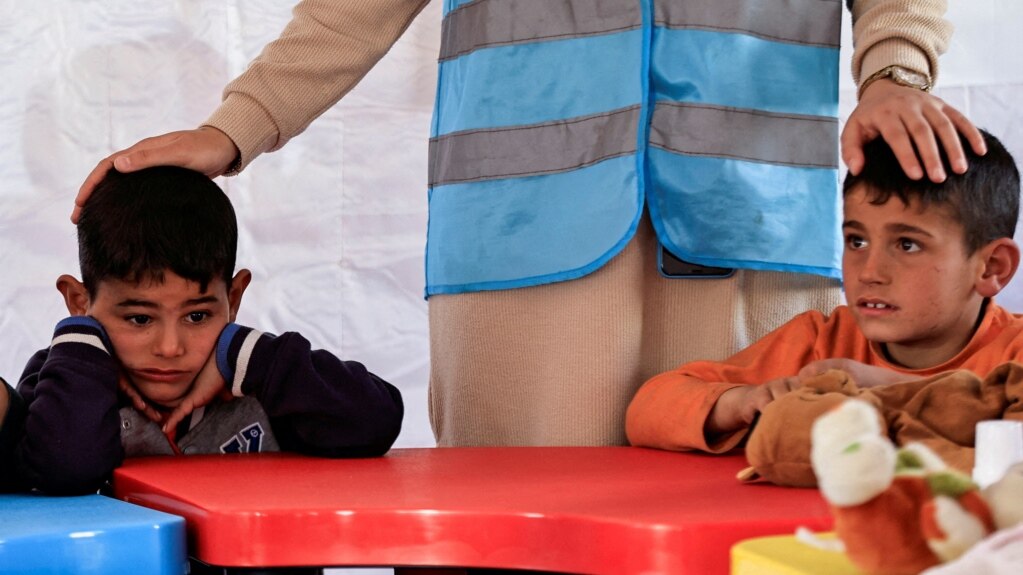The recent 7.8 earthquake magnitude earthquake that struck Turkey and Syria caused major physical destruction and loss of life in both countries. Health experts now warn that the disaster will also cause major mental health damage as well.
Officials say tens of thousands of people died and over 1.5 million were left homeless in cold winter conditions. Many have lost family members, jobs and their hopes for the future.
Tugce Seren Gul's aunt and grandmother were killed in Antakya in Turkey's southeast. Every night, she waits until 4:17 am in the morning, the exact time that the disaster hit, to try to go to sleep.
"I keep thinking another disaster will strike at that time and just wait for it to pass," said the 28-year-old Gul. She escaped by running out of her family house with her mother moments before the walls collapsed.
Gul said the horror has weighed heavily on the mental health of survivors who "lost everything" in the city of Antakya.
She wants to one day seek professional mental health help to deal with the trauma. But for now, she is establishing a new life for herself and her family.
Children at risk
Experts fear children will be hardest hit. The United Nations International Children's Emergency Fund (UNICEF) said many of the more than 5.4 million children who live across the area affected by the earthquake were at risk of developing anxiety, depression and other disorders.
"We know how important learning and routine is for children and their recovery," UNICEF Regional Director for Europe and Central Asia Afshan Khan said after a visit to Turkey.
"They need to be able to resume their education, and they urgently need" psychological "support to help deal with the trauma they have experienced."
Mehmet Sari is a government social support worker. He said he and others in his team have seen signs of trauma in children.
They need long-term support to recover from trauma, he said.
Turkey's Ministry of Family and Social Services said it has sent more than 3,700 social workers to support those affected by the earthquake.
‘The stress is chronic’
Psychologist and professor at MEF University, Ayse Bilge Selcuk, said the Turkish people have already been under pressure. She said rising poverty and the COVID-19 pandemic have hurt the country.
"The stress is chronic," Selcuk said, meaning that the tension continues over time. "For this nation to get back on its feet, we need to find that strength within us and that starts with our psychology," she added.
President Recep Tayyip Erdogan has promised to rebuild homes within a year. But it will still be many months before thousands can leave temporary shelters.
People look numb, likely a defense process to deal with stress, said Selcuk. Anxiety, helplessness and depression are likely to be common and young people could feel anger.
Rebuilding efforts should include mental health, Selcuk said. She urged the government to provide money for training psychologists to be sent to the earthquake areas to stay there.
"We shouldn't withdraw our attention three months later," she said.
I’m Mario Ritter, Jr.

